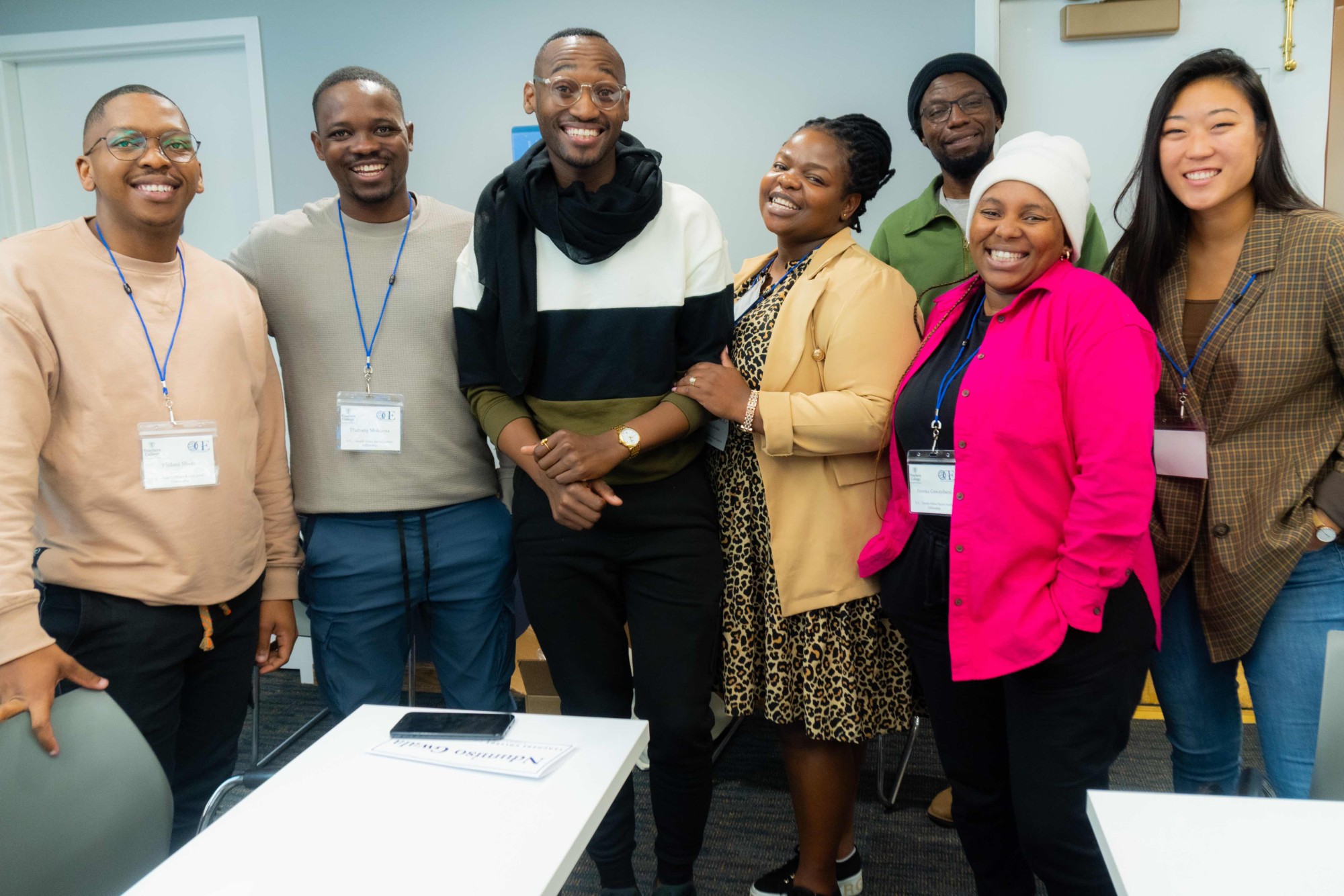After a week of community-building and scholarship in Durban, South Africa, the inaugural Racial Justice Fellowship Program between TC and University of KwaZulu Natal (UKZN) reunited its 24 fellows in NYC this past September for their second and final week of in-person activities. Intersectional scholarship and cultural exchange were the themes of the week as U.S. and South African fellows heard not only from TC faculty and students in a range of programs including Education Policy, Social Studies Education, and Curriculum and Teaching— as well as members of the Black Education Research Center (BERC) Advisory Board—but also from Harlem public school principals and, perhaps most importantly, each other.
“...It's this interaction, this cultural exchange, this exchange of expertise, knowledge, and experiences [that] led the world to where it is right now. And I believe that by doing what we are doing in this fellowship, we are going to try to bring the world to an even better place than it is right now,” says Amine Meechaal, Director of Global Engagement.
As President Bailey explained in his opening remarks, the fellowship — which looks to incubate a new generation of racial justice scholars and leaders—is a natural continuation of TC’s 135-year legacy of “taking on hard questions and addressing issues of equity through courageous inquiry.” President Bailey wrapped up his welcome saying, “Not only are you working with our best leaders, but you are also following in their footsteps to become the next leaders for this work. This is our very mission here at Teachers College.”
The Intersectionality of Work at TC Was on Full Display
Coordinated by Sonya Douglass, Professor of Education Leadership and the founding director of the Black Education Research Center, and the BERC team, the week’s programming offered international scholars a glimpse into TC’s research-driven practice on education equity. Speakers came from a variety of programs and centers, offering a wealth of expert opinions on racial justice and how it manifests in schools.
“We believe that this program is one way to help develop the next generation of racial justice leaders,” said Douglass in a welcome speech. “We are in a critical moment in time where we can, through mobilization and being strategic about how we stand up for teaching the truth, either move the country in one particular direction around education or let it slide back into places that we don't want it to go back to.”
In line with that purpose, sessions highlighted methods, ongoing research at TC, inclusive research practices and provided deep context for the state of education in the U.S. They were also designed to foster rich dialogues, with a particular emphasis on roundtable discussions where fellows were able to be in true conversation with speakers, sharing their own conceptions and experiences of race and racial justice.
Fellows were also given room to showcase their own work. A particularly stand out moment of the week was when Msakha Mona, a Ph.D candidate at University of Cape Town who critiques the coloniality of formal education and uses art to bridge educational gaps, led a room of his colleagues and public school principals in a collaborative music making exercise.
Community Engagement Was Another Focus of the Week
Fellowship programming offered an opportunity to demonstrate TC’s deeply rooted connection to the greater Morningside Heights and Harlem communities. After learning about the complex social and political contexts of American education, fellows were then able to commune with Harlem principals, gaining an unparalleled look into the operation of local schools and a deeper look at how TC is supporting educators through professional development.
The joint session provided a chance for fellows to understand the day-to-day work going on in NYC public schools while also giving principals a peek into the wealth of scholarship coming from fellows. Fellows also visited with students, teachers and leaders in two Harlem schools, including the TC Community School, for a closer look at this school-community-university partnership.
Despite this week of programming likely marking the last time the entire cohort will see each other in person, it reinforced the bonds formed in South Africa this past June and provided fellows with the tools they need to take their places as the next generation of racial justice leaders.
“My hope is that moving forward, the scholars will carry with them their newfound friendships and an appreciation for their role as researchers, practitioners, and/or activists in the struggle for racial justice in education," says Douglass.
